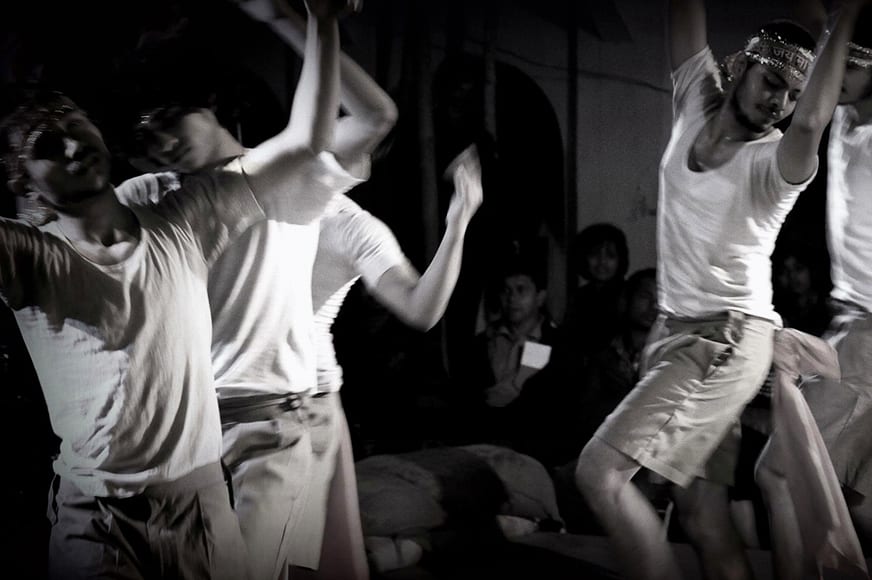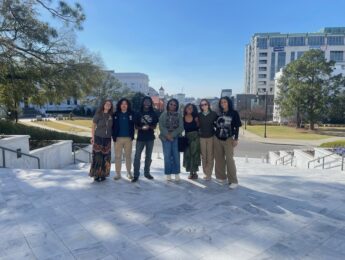

Theatre events are a sum total of the conditions in which they are built and the conditions in which they are viewed. A new book written by Arnab Banerji, assistant professor of theatre arts, has been touted as showing a refreshing new perspective toward a theatre culture that frequently escapes the critical lens in spite of being one of the largest urban theatre cultures in the world. “Contemporary Group Theatre from Kolkata, India” (Routledge UK) has been published as part of Routledge’s Advances in Theatre and Performance Studies Series. Banerji’s primary area of research interest is contemporary Indian performance, translation of Indian plays, and performance of identity by the South Asian diaspora.
Studying an event separate from its materialistic beginnings and semiotic effects allow only a partial insight into the performance phenomenon. The materialist semiotic critical framework of this book locates the Bengali group theatre within its performative context and offers a heretofore unexplored insight into this vibrant theatre culture.
“The book is the first of its kind offering a materialistic semiotic analysis of a non-Western theatre culture: Bengali group theatre,” said Banerji. “It fills two lacunas in contemporary theatre scholarship. First, the materialist semiotic approach to studying a non-Western theatre event allows me to critically examine the material conditions in which theatre is created and seen outside the Euro-American context. And second, by shifting the critical lens onto a contemporary urban theatre phenomenon from India, the book attempts to even out the scholastic imbalance in Indian theatre scholarship which has largely focused on folk and classical traditions.”
More information about the book is available here.
The image above depicts members of Theatre Formation Paribartak performing the play Lakkhaner Shaktishel. The production imagined Lord Ram’s army of primates as the cadre of RSS (Rashtriya Swayamsevak Sangh, a Hindu terrorist group).






